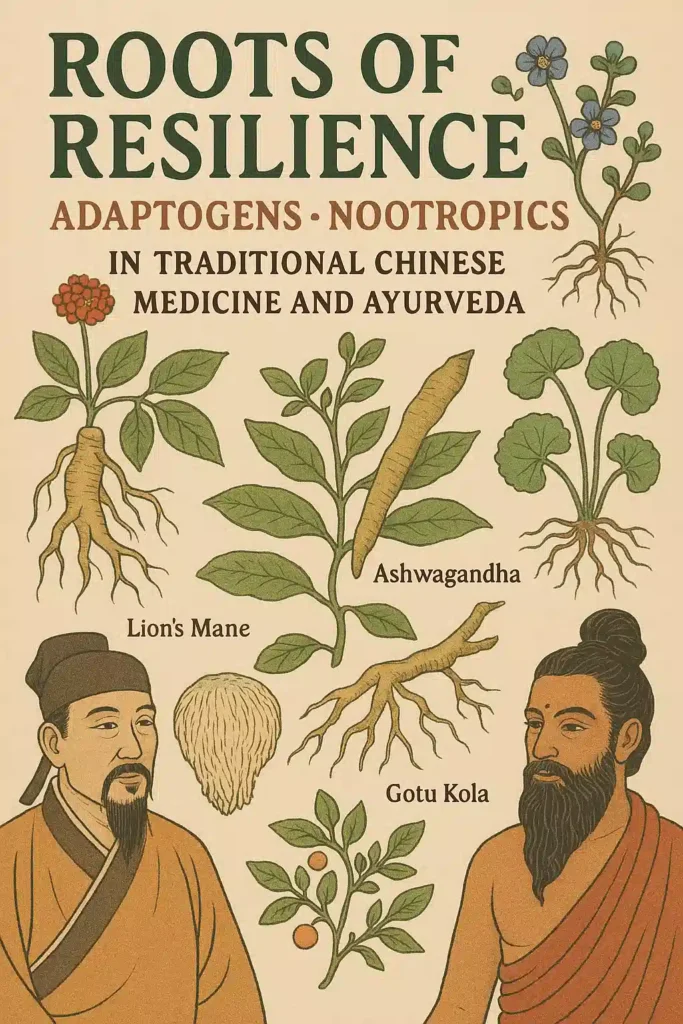
For thousands of years, ancient healing systems have harnessed the power of botanicals and fungi to restore balance, sharpen the mind, and nurture vitality. At Shroom Bar, we honor these time-tested traditions by blending their wisdom with modern wellness.
We are going to take a quick dive in to explore how Traditional Chinese Medicine (TCM) and Ayurveda have used adaptogens and nootropics—not just as supplements, but as sacred tools for holistic well-being.
In TCM, health is viewed as a dynamic balance of yin and yang, supported by the smooth flow of qi (vital energy). Adaptogens and nootropics play key roles in maintaining this equilibrium, often prescribed to:
In TCM, these herbs are rarely taken alone—they’re carefully combined in formulas to address individual imbalances.
We are going to take a quick dive in to explore how Traditional Chinese Medicine (TCM) and Ayurveda have used adaptogens and nootropics—not just as supplements, but as sacred tools for holistic well-being.
Ayurveda, India’s 5,000-year-old healing system, teaches that health arises from balancing the doshas (Vata, Pitta, Kapha). Adaptogens and nootropics are classified as rasayanas—rejuvenating tonics that promote longevity and mental clarity.
Key Ayurvedic Adaptogens & Nootropics
Ayurveda emphasizes personalized use—herbs are chosen based on one’s dosha, lifestyle, and seasonal needs.
Though these systems developed continents apart, they share profound similarities:
At Shroom Bar, we bridge these traditions with contemporary science, crafting blends that honour their roots while fitting seamlessly into modern life. Some ways to incorporate them:
In our next post, we’ll explore adaptogens and nootropics— for a better understanding, so whether you’re a busy professional, a creative mind, or someone seeking deeper relaxation, there is something for everyone.
In the meantime, browse our adaptogen and nootropic blends at our online store, each crafted with reverence for these ancient traditions.
May your path be balanced, your mind clear, and your spirit nourished. —The Shroom Bar Team
P.S. Have a favorite TCM or Ayurvedic herb? Share your experiences in the comments!